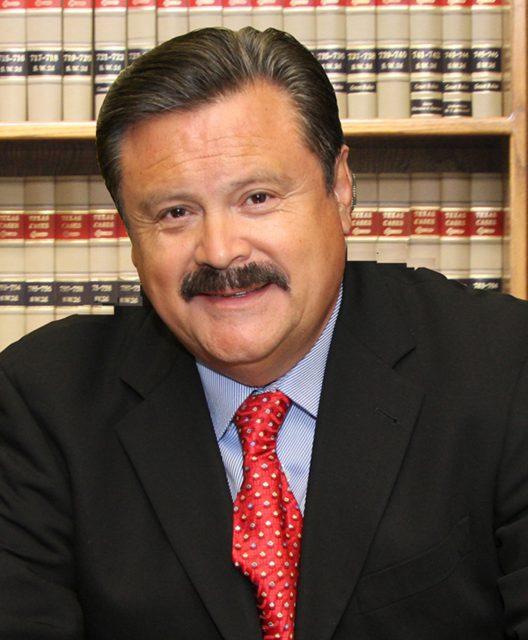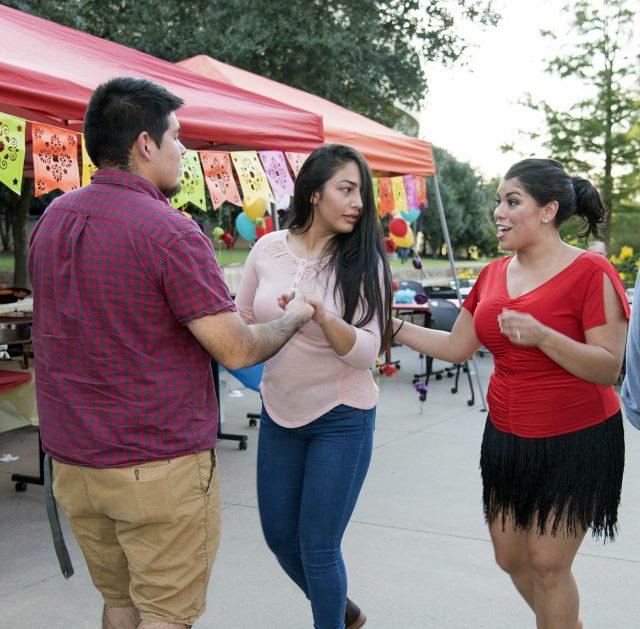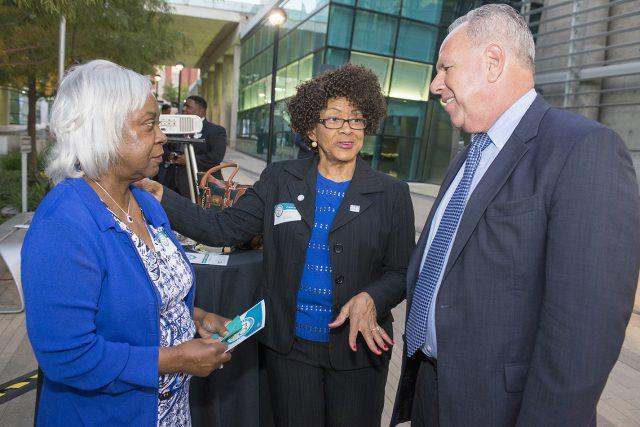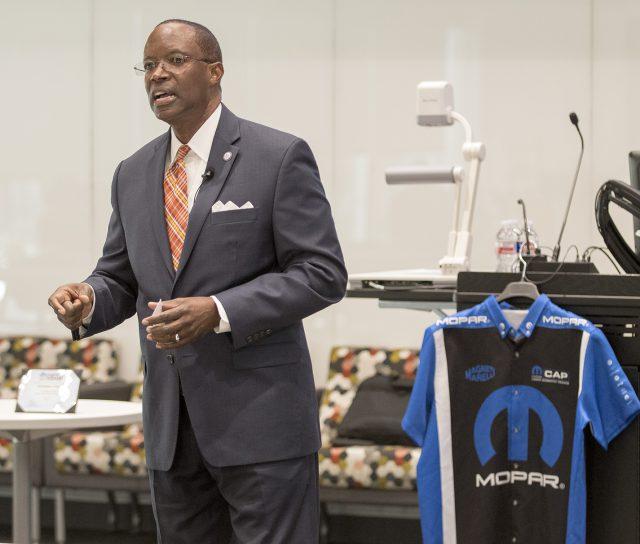By Richard Marmolejo/reporter
Latinos never crossed the border as much as the border crossed them, a guest speaker told TR students Oct. 10 during a discussion on immigration reform.
Domingo Garcia has led an active civic, legal and political career, having served as a successful trial lawyer, columnist, television commentator, former Dallas mayor pro tem and Texas state legislator.
“If someone comes and takes your stuff with a gun in their hand, does that mean you gave them permission to take it?” he asked.
Garcia shared the experiences that motivated him to work toward a better future. He recalled an early childhood memory when he was punished for speaking Spanish at school.
“I remember in third grade, I was playing soccer, and I asked one of my fellow classmates, ‘pasame la bola’ which means pass me the ball,” he said. “The coach grabbed me by the hair, took me to the principal, and I got three licks that day. He said, ‘We told you not to speak Spanish in school.’ This leaves a mark on you at that age.”
Garcia became a legal advocate of the community to secure a better future for everyone.
“In the courtroom, you’re supposed to be all equal. Doesn’t matter if you’re black, white, brown, straight or gay. The law is supposed to treat you equal,” he said. “That’s what inspired me to be an attorney.”
Garcia acknowledged the recent issues targeting immigrants and their families across the nation.
“Right now, SB4 [Senate Bill 4] just passed the Legislature, which means that all the police have the power to act like immigration officers,” he said.
Garcia understands many people are discouraged to vote because they believe their votes do not make a difference. He countered these arguments by sharing the accomplishments he has made throughout the years that helped shape the way Latinos live today.
“Politics affect everybody whether you get involved or not,” he said. “If you don’t get involved, you’re just letting someone else make your decisions. We need to make sure we keep on putting that social pressure for social justice and equality.”
The audience learned how Garcia was among those who fought for different rights some students have today. In 2001, former Gov. Rick Perry signed a law allowing immigrant students who graduated from a Texas high school the chance to pay in-state tuition, an idea Garcia helped propose. He also helped organize a 2006 march for immigration rights that more than 500,000 people turned out for.
Garcia mentioned how today’s DFW area is different than in the 1960s and 1970s. He told the audience how every weekend back then he would have anywhere from three to eight clients come in seeking help that had been beat up by the cops.
He continued by saying the region now has a more diverse police force who face consequences when they commit an unconstitutional action.
Garcia sees the U.S. as a melting pot that welcomes people from all types of backgrounds. He said that is what this country was fundamentally built on.
“This is a country of immigrants,” he said. “Those of us who were here already, those of us who came over on the Mayflower, or to Ellis Island, or on slave ships, we are all together. We are all part of America. It’s all about what you can bring to the table.”
TR Manos y Manas senator Marina Luna expressed her gratitude for Garcia and all of his accomplishments for the Latino community.
“Thanks to him, my friends are able to receive in-state tuition costs, which is something I didn’t know he helped with,” she said. “Over half of my friends are benefiting from that movement. He’s also moving forward with DACA [Deferred Action for Childhood Arrivals], which is going to help not only Texans but people across the country.”
TR SGA president David Dominguez also discovered the impact Garcia has had on everyone.
“He’s definitely a big player in fighting for what’s right,” he said. “Setting up a legal document that protects an illegal immigrant in allowing them to get their education and go to work is important. For him to make these types of changes is only going to better the generations to come.”
Luna encouraged people to become more involved with informative events because she realizes the vital impact those events can have on them.
“[These events] are very important because they bring you knowledge,” she said. “Knowledge right now seems like the only thing that can protect us from anything. It shows that we care.”





































